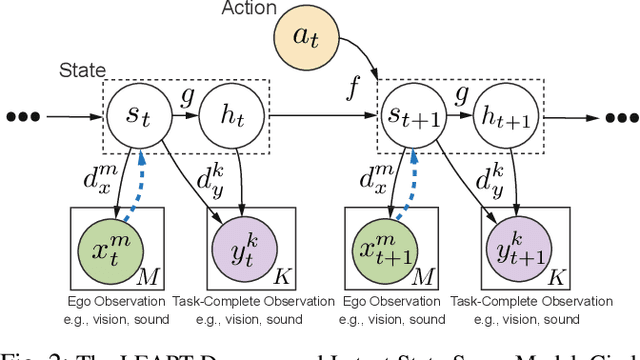Latent Emission-Augmented Perspective-Taking (LEAPT) for Human-Robot Interaction
Paper and Code
Aug 12, 2023



Perspective-taking is the ability to perceive or understand a situation or concept from another individual's point of view, and is crucial in daily human interactions. Enabling robots to perform perspective-taking remains an unsolved problem; existing approaches that use deterministic or handcrafted methods are unable to accurately account for uncertainty in partially-observable settings. This work proposes to address this limitation via a deep world model that enables a robot to perform both perception and conceptual perspective taking, i.e., the robot is able to infer what a human sees and believes. The key innovation is a decomposed multi-modal latent state space model able to generate and augment fictitious observations/emissions. Optimizing the ELBO that arises from this probabilistic graphical model enables the learning of uncertainty in latent space, which facilitates uncertainty estimation from high-dimensional observations. We tasked our model to predict human observations and beliefs on three partially-observable HRI tasks. Experiments show that our method significantly outperforms existing baselines and is able to infer visual observations available to other agent and their internal beliefs.
 Add to Chrome
Add to Chrome Add to Firefox
Add to Firefox Add to Edge
Add to Edge